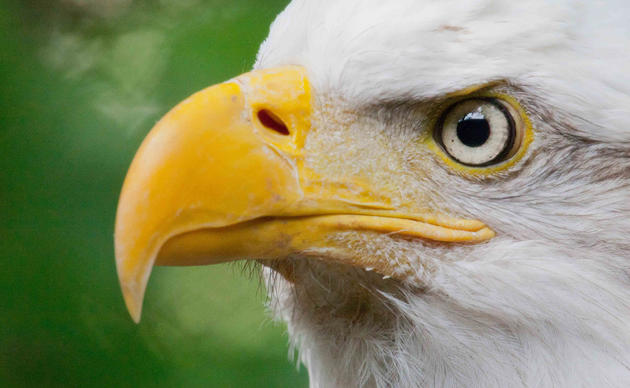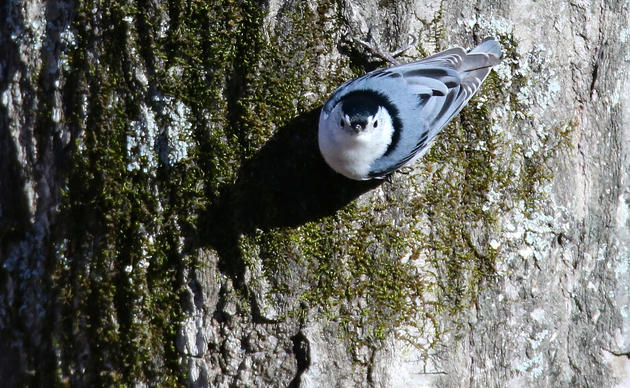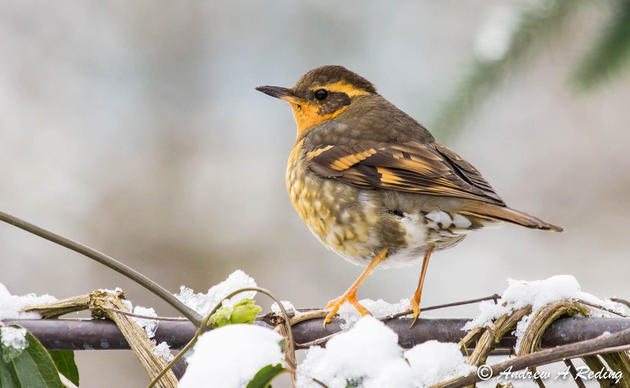On Thursday, March 12 the legislature wrapped up a short 60-day session with mixed results for climate and conservation.
After last year’s passage of the Clean Energy Transformation Act we had high expectations for the legislature to pass aggressive transportation emissions reduction policies. Unfortunately, our top transportation emissions priority, the Clean Fuel Standard, once again stalled out in the Senate Transportation Committee.
On the bright side, a number of important climate bills did make it to the governor’s desk. These include: Sustainable Farms and Fields (SB 5947), a Zero Emissions Vehicles mandate (SB 5811), a bill that sets new, ambitious net-zero greenhouse gas emissions limits (HB 2311), and funding for a project that will lead to responsible, efficient siting of solar energy in the Columbia Basin.
While some progress was made in the short legislative session, unless we take more far-reaching measures, birds and people will face increasingly dire threats. We must keep up the pressure to adopt more far-reaching policies, such as clean fuels and carbon pricing, which will have a clear and measurable impact on carbon reduction. We also must continue to advocate for more stable and robust funding for our state’s conservation agencies.
Passage of Key Audubon Priorities
Sustainable Farms and Fields
The legislature passed the Sustainable Farms and Fields bill (SB 5947), which helps farmers access funding to voluntarily adopt more efficient and effective emissions reduction and sequestration practices aimed at increasing the quantity of carbon stored in the land. It also has the potential to help some farmers become producers and suppliers of the clean fuels Washington needs to reach its emissions goals.
This bill provides $225K over the next year to launch the grant program. Audubon Washington will continue to build support for the grant funding required to create a significant impact in the agricultural sector of the state. With support from Carbon Washington, the Washington Farm Bureau and other key stakeholders, SB 5947 is an example of effective coalition building and strong bipartisan cooperation.
Greenhouse Gas Emissions Limits
This bill (HB 2311) requires state agencies to set a goal of net-zero carbon emissions by the year 2050 and includes other emissions reduction targets. This legislation also makes carbon sequestration the policy of the state and requires state agencies to consider carbon sequestration potential in all contracting and grant making activities further supporting partnerships around natural climate solutions.
Smart Solar Siting
The 2021 supplemental budget includes a $500K budget proviso to fund a least-conflict solar siting project at Washington State University’s Energy Program. The project will focus on understanding and mapping potential conflict areas in Washington’s sunny Columbia Basin with the goal of helping clean energy developers identify the best places to develop utility scale solar projects. The proviso, spearheaded by Audubon, had support from American Farmland Trust, Renewable Northwest, and state and local elected officials from both sides of the aisle. As we develop a 100% clean energy grid, stakeholder-driven processes like this will play a key role in helping to responsibly and efficiently site the clean energy we need.
Zero Emissions Vehicles (ZEV)
The passage of the Zero Emissions Vehicles bill (SB 5811) will require automakers to make more electric or other zero-emission vehicles available for sale in Washington. Washington joins 11 other states currently participating in the ZEV program, which requires that a minimum percentage of the passenger vehicles supplied by automakers be electric.
Funding for the Department of Fish and Wildlife (WDFW)
The legislature has provided WDFW with $27M in State General Fund appropriations in the supplemental operating budget. This will fund WDFW’s core services through June of 2021 and allocates significant resources for new work. The ongoing dollars are close to fully funding WDFW’s important work, which is a huge improvement, especially in a supplemental year. This improved funding was in no small part thanks to the nearly 2,500 emails sent by Audubon members over the course of the short 60-day legislative session.
Environmental Priorities Coalition (EPC) priorities
As an EPC member, Audubon Washington helped pass the greenhouse gas emissions bill (HB 2311). EPC also passed a ban on plastic bags (SB 5323) and a budget proviso that will explore how to implement the principle of “net ecological gain” in shoreline project development. Unfortunately, our top EPC priority, Clean Fuels, did not make it out of the State Senate.
For a full run-down of all of the policies Audubon was supporting and monitoring in the 2020 legislative session, see our legislative tracker.
More Work Ahead
While Audubon Washington supported updating Washington state’s emissions reduction targets (HB 2311), setting targets is simply not enough. For the second year in a row the House of Representatives passed a Clean Fuel Standard and the Senate failed to act. The Clean Fuel Standard would set clear emissions reductions targets, reducing the carbon intensity of transportation fuels 25% by 2035.
This policy would create a marketplace for cleaner transportation fuels and aid electric utilities in supporting the transition to electric vehicles. Looking ahead to the 2021 legislative session, it’s imperative that the state legislature adopt the policies necessary to reach Washington’s ambitious new targets for emissions reduction while continuing to enhance the capacity of our natural landscapes to absorb carbon emissions.



